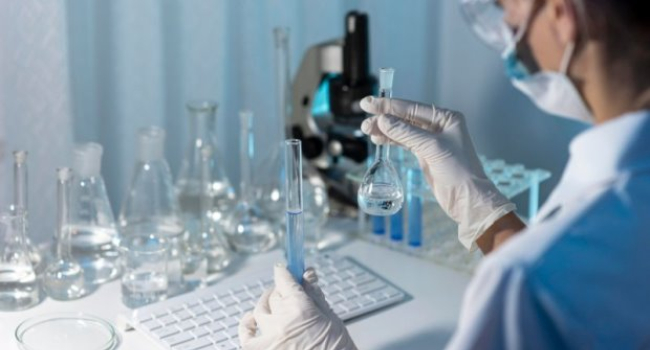- Latest news▼
-
11:29, June 28 Kobayashi Pharmaceutical investigating 76 more deaths linked to biologically active supplements

-
08:23, June 28 Children ages 5 to 12 are more likely to get concussions during recreation and other non-sports activities - study

-
18:20, June 27 Depression in adolescents linked to increased risk of cardiovascular disease - study

-
16:38, June 27 Nature Aging: experimental drug rejuvenated the livers of old and sick mice

-
14:55, June 27 Lancet: hypertension may be a major avoidable risk factor for dementia

-
08:43, June 27 Women with heart disease less likely to have concomitant problems corrected during surgery - study

-
22:22, June 26 Environment International: Children who spend more time in nature are mentally healthier, study suggests

-
13:58, June 26 Armenia addiction treatment national center director: 210 patients with drug addiction received treatment in 2023

-
08:42, June 26 Multiple brands of ice cream recalled in US due to listeria fears

-
19:31, June 25 MedXpress: pain medications increase sensitivity to sunlight

-
15:09, June 25 World Health Organization reports more than 3,100 cases of mpox worldwide

-
08:38, June 25 Experts discover why some people don't get infected with COVID-19

-
23:22, June 24 Foods that effectively lower blood sugar level are revealed

-
08:36, June 24 Researchers uncover hidden DNA mechanisms of rare genetic diseases

-
08:49, June 22 Research confirms link between snoring and hypertension

All materials
Nature Aging: experimental drug rejuvenated the livers of old and sick mice

Scientists have discovered how aging leads to the loss of certain liver cells. They were able to reverse this process in elderly mice using an experimental drug. The results of the study are published in the journal Nature Aging.
The liver can renew itself, making it considered one of the most resilient organs. However, stress and aging can still cause its severe diseases. For example, one in three people suffer from non-alcoholic fatty liver disease (NAFLD), which leads to scarring and cirrhosis. Aging is a key risk factor for cirrhosis in NAFLD.
In the new study, scientists compared the livers of young and aged mice. The older animals had more active genes associated with the loss of hepatocytes, the main functioning cells in the liver.
The scientists showed that the experimental drug ferrostatin-1 could prevent hepatocyte loss. It blocked ferroptosis - self-destruction of cells, an important role in which iron plays. The drug "rejuvenated" the livers of mice sitting on an unhealthy diet. Analysis showed that the elderly mice had livers that were little different from healthy and young mice. The animals also had healthier hearts, kidneys and pancreas. This means that liver damage can make other organs worse.
"Our study shows that liver aging is at least partially reversible," the authors concluded.
Follow NEWS.am Medicine on Facebook and Twitter
- Most read
month
week
day
- Experts discover why some people don't get infected with COVID-19 1298
- Armenia addiction treatment national center director: 210 patients with drug addiction received treatment in 2023 1277
- World Health Organization reports more than 3,100 cases of mpox worldwide 1250
- Foods that effectively lower blood sugar level are revealed 1232
- Researchers uncover hidden DNA mechanisms of rare genetic diseases 1151
- Multiple brands of ice cream recalled in US due to listeria fears 1141
- MedXpress: pain medications increase sensitivity to sunlight 1115
- Nature Aging: experimental drug rejuvenated the livers of old and sick mice 858
- Environment International: Children who spend more time in nature are mentally healthier, study suggests 831
- Lancet: hypertension may be a major avoidable risk factor for dementia 829
- Depression in adolescents linked to increased risk of cardiovascular disease - study 829
- Women with heart disease less likely to have concomitant problems corrected during surgery - study 822
- Kobayashi Pharmaceutical investigating 76 more deaths linked to biologically active supplements 615
- Children ages 5 to 12 are more likely to get concussions during recreation and other non-sports activities - study 605
- Find us on Facebook
- Poll





